Vinyl is an excellent material that you can use to make a wide variety of products, and many people around the globe have created profitable businesses by printing, cutting, and selling these products. Today, there are many different types of vinyl, and it’s important to choose the right type for the job at hand. By choosing the best type of vinyl, you can create quality products that your customers will love.
Which Vinyl is Best for Glass?
If you’re applying vinyl to glass surfaces, you might want to reach for a roll of permanent vinyl. As the name implies, permanent vinyl is built to last, and it’s not removable like other varieties. Permanent vinyl is an especially good idea if you’re applying your vinyl to glass windows that will be exposed to the weather. You might also want to use permanent vinyl for glasses that will see plenty of dishwasher cycles, as temporary varieties will simply peel off instead.
You might also consider heat transfer vinyl rather than adhesive vinyl for glass-related applications. Although heat transfer vinyl might be a little more pricey than the adhesive varieties, it is generally thinner. This means that you’ll be left with nice and smooth edges rather than bulky edges along the glass.
For a cool aesthetic twist, consider using frosted outdoor vinyl, as this adds a stunning visual effect to glass. If you’re having trouble getting your vinyl to stick to glass, remember to wipe the surface with alcohol or acetone beforehand. You might also want to invest in some high-quality transfer tape, as the cheaper options can be a tad unreliable. For whatever reason, some glass surfaces are inherently more oily than others – especially champagne flutes.
Which Vinyl is Best for Cups?
Vinyl decals and stickers are becoming incredibly popular for mugs and cups these days, and some people have created entire businesses selling these personalized drinking vessels. So what’s the best type of vinyl to use on these surfaces? If you’re working with coffee mugs, you’re probably dealing with a ceramic surface. Again, you’re going to want to reach for some permanent vinyl, as this is more likely to be dishwasher safe. Coffee mugs definitely see a lot more action than champagne flutes, which means durability is key. This means that you might want to select a vinyl with a thicker membrane and a stronger adhesive. The thicker and stronger vinyl is, the more likely it is to be dishwasher safe.
While most people prefer to use adhesive vinyl for mug decorations, you can also try using heat transfer vinyl. If you want to try your luck with this approach, make sure to use a lower heat than normal and go slowly. You’ll need to do multiple passes across the mug on this low heat setting, as too much heat could cause the material to shatter. That being said, using this heat transfer method may not make your mugs dishwasher safe. It’s totally fine if you’re planning to handwash your mugs but adhesive vinyl may be the best choice otherwise.
Which Vinyl is Best for Car Decals?
Creating vinyl car decals is one of the most exciting vinyl businesses, and you can get seriously creative with this endeavor. So which type of vinyl should you use on vehicles? Vehicles are exposed to the elements on a regular basis, so permanent vinyl is the obvious choice here. You’ll also need to choose a vinyl material with extremely strong adhesive. This is because most car owners like to wash their cars from time to time, and vinyl can peel off during this process unless you choose vinyl with adequate adhesive.
You might want to speak to the owner to determine their long-term plans for the vinyl. Do they want their decals to be permanent, or are they just looking for a cool new style for the summer? You can place decals on the body of the vehicle or the windows. Window decals are typically smaller, and they may be quirky little messages or symbols. For these smaller window decals, you might want to opt for temporary vinyl. This will make removal easier if the customer ever gets sick of the designs.
You might also want to determine what kind of weather the vinyl will be exposed to. If you live in a very sunny area, you might need to worry as much about durability. However, if the vehicle will be exposed to rain, snow, and hail, you might want to choose a tougher vinyl material. Of course, extreme heat can also cause vinyl to peel if you’re not careful – so good adhesivity is important regardless of the climate.
There’s also a big difference between cast and calendered vinyl when it comes to auto decals and wraps. Cast vinyl begins its life as a liquid. This liquid is then poured into a mold, and this creates soft, flexible vinyl material that is easy to stretch. Calendered vinyl begins its life as a solid and doesn’t conform as well to curved surfaces. This makes it a better choice for signs.
Cast vinyl is typically more expensive and can be more effective for extremely curved surfaces. Since cars have tons of curved surfaces like bumpers and hoods, you might be better off with cast vinyl. Cast vinyl also lasts longer and stands up better to the elements. This obviously results in a higher price point. However, calendered vinyl can also handle curved surfaces under the right circumstances, especially if you know your way around a heat gun.
In addition, calendered vinyl can be a solid choice for vehicle lettering. This is typically used by people who want to turn their cars into “mobile advertisements” for their businesses. Vinyl lettering can be placed along the side of the vehicle, which is relatively flat. This means that you won’t have to worry too much about contoured surfaces because your letters will be straight and flat.
Of course, you’ll also need to choose the right color vinyl. This is more important than you might think, as you’ll need to choose a shade that compliments the existing paint job. You can try contrasting colors, more subtle options, or “wilder” options, such as chrome or metallics.
If you really want to make a statement, consider Vinyl Select Carbon Fiber. This type of vinyl will last three to five years with a solid thickness of 65 to 75 microns, and it boasts a unique metallic look for an eye-catching auto wrap or decal. Vinyl Select also offers options such as Holographic, Fluorescent, Metallic, and Steel Plate. All of these vinyl materials are durable while offering their own unique aesthetic qualities.
Hexis also offers some incredible cast vinyl for auto wraps and decals, including HX2000. This multilayered PVC film features a reliable, strong “HEX’Press” adhesive for long-lasting durability. It is also quite thick and will retain its color even after excessive stretching. This film is specifically designed for full wraps and comes in a wide range of colors.
Which Vinyl is Best for Signs?
As previously noted, calendered vinyl is a popular choice for signs due to its lower price point and ease of use. That being said, cast vinyl can also be used for sign-making. In fact, cast vinyl might actually be the better choice if you want your signs to last as long as possible, as this material can last for upwards of 7 years while being exposed to the elements. Cast vinyl might be an especially good choice if you’re making outdoor signs.
You might also want to consider reflective or fluorescent film if you really want to create an attention-grabbing sign. Reflective film shines in the dark under vehicle headlights, making roadside signs stand out. You can also use translucent vinyl to create signs that are illuminated from within. Build your sign around a box with a light source in the center, and the light shines through the vinyl, making your sign even more visible.
Perforated window vinyl is also quite impressive, as it allows you to cover an entire window with your sign without stopping light from passing through. From the inside of a business, the window looks completely normal. But step outside, and you’ll see the entire surface covered with the company’s branding. Perforated window vinyl creates something akin to a two-way mirror effect, and it allows businesses to maximize their advertising space.
Vinyl Select’s Basic Gloss is a solid choice if you’re looking for a reliable sign-making vinyl. This is a calendered vinyl that is surprisingly long-lasting, and it can handle up to five years of exposure to the outdoor elements. The semi-gloss finish is quite eye-catching, and it features a strong, reliable adhesive.
Hexis also offers a stellar vinyl material called SMARTAC KG8000. This is a cast film that can conform to all kinds of different surfaces, whether you’re working with curves, rivets, or other deformations. Cutting this vinyl is exceptionally easy thanks to its solid dimensional stability, and it uses a reliable, solvent-based acrylic adhesive. With a gorgeous gloss finish, this polymeric PV vinyl is guaranteed to attract plenty of attention – which is what good signage is all about. SMARTAC KG8000 vinyl also comes in a wide range of color options, including metallic and fluorescent shades.
Which Vinyl is Best for Shirts?
Many entrepreneurs have focused entirely on creating incredible t-shirt designs with their vinyl plotters, and this can be a truly profitable endeavor. But before you can succeed with your t-shirt screen-printing business, you’ll need to figure out what type of vinyl to use. First thing’s first – you need to use heat transfer vinyl for this type of job. Also known simply as “HTV,” heat-transfer vinyl is the only variety you can use with textiles, as adhesive vinyl just doesn’t work properly.
Heat transfer vinyl can be applied to t-shirts relatively easily using an iron. You can also use this type of vinyl for all kinds of textile products, including bags, pillow cases, totes, and much more. Some savvy entrepreneurs have even been using HTV to create their own holiday cards.
If you’re focusing on t-shirt designs, you need to choose vinyl with a wide range of colors. Unless, of course, you’re simply creating basic black and white designs. But where’s the fun in that? You should also choose vinyl that is toxin-free. Remember, small children may be wearing these t-shirts (and adult humans too!). This means that you should probably select vinyl material that is free from chemicals like phthalates and other toxins.
Fortunately, many vinyl options from Vinyl Select are 100% pththalate-free, giving you excellent peace of mind as you distribute these products to your valued customers. Many of Vinyl Select’s products are also eco-friendly as well, and many customers specifically look for eco-friendly options when shopping for clothing.
Which Vinyl is Best for Wood?
Many sign-making enthusiasts love using wood as a base material. Wood is sturdy enough to stand up to the elements, and it’s easy to use for all kinds of construction projects. The good news is that you can stick vinyl designs and lettering directly onto wooden surfaces – but you’ll need to choose the right variety.
Many sign-making entrepreneurs love using HTV for wood signs. This is the same type of vinyl you use with t-shirts and other textile products. By using this type of vinyl, you can preserve the natural beauty of the wood underneath. With a clear vinyl backing, the lettering stands out while the wood underneath continues to add to the appeal of the sign.
With all that said, you can also use adhesive vinyl for these projects. If you choose this option, make sure to use permanent vinyl. This will increase the chances of the vinyl sticking to the surface. Temporary vinyl won’t stand the test of time in comparison. If you’re using adhesive vinyl, you should probably prep the wood surface with varnish or laminate. Raw wood may be difficult to work with.
Which Vinyl is Best for Stickers?
Don’t underestimate the profitability of stickers. Many entrepreneurs have made fortunes with sticker-making businesses, and it’s not hard to see why. Who doesn’t like stickers, right? Well, in order to achieve adequate profits, you’ll need to use the right type of vinyl for the job.
The good news is that you can get away with using cheaper, temporary vinyl for your sticker-making business. With this material, you can all kinds of fun, casual stickers. Many businesses purchase stickers to give to their customers, hoping that they will stick them in random places and boost their marketing strategy. Stickers are especially popular for clothing companies, skateboard companies, music groups, and the like.
Generally speaking, temporary vinyl is the best choice because many people like to remove stickers after a while. However, you can also make sturdier, more permanent stickers with (you guessed it) permanent vinyl. Either way, you can choose between white glossy sticker material or matte varieties. Holographic, reflective, and glittery vinyl can make for some truly breathtaking stickers.
Final Thoughts
Starting your own business may be easier than you think. All you need is a decent plotter, the right vinyl material, and customers who are willing to buy your products. Choose whether you’d like to sell car decals, signs, stickers, t-shirts… or why not sell everything? Fortunately, you can find everything you need to get started at Plotter Depot – an online resource that provides plotters, software, and all the vinyl you need.








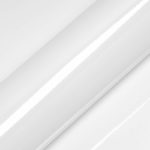 Secabo Heat Presses
Secabo Heat Presses
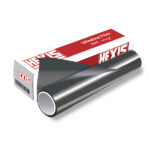 Skintac HX20000
Skintac HX20000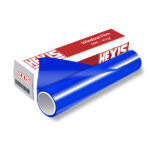 SKINTAC HX30000
SKINTAC HX30000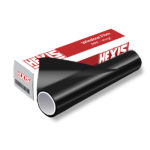 SKINTAC HX45000
SKINTAC HX45000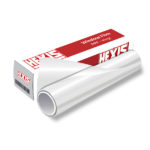 SMARTAC KG8000
SMARTAC KG8000





